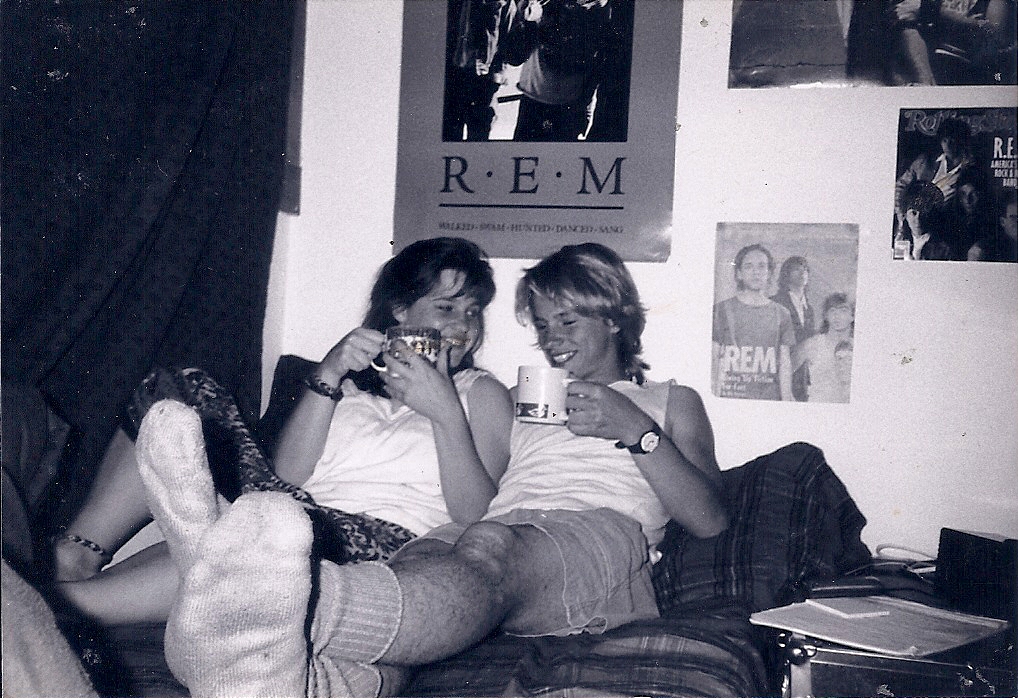
Last week, I texted my friend Amani to see if he wanted to catch The Fault in Our Stars. He texted back, "kidding?"
We've been friends since we were fifteen, and he knows I'm averse to movies and books with a love-in-the-face-of-death storyline. I've never read Love Story, never seen Dying Young, or even Ghost. I avoid these stories the way a mafia member might avoid The Sopranos, or a woman who's been in prison might not be too excited about Orange Is the New Black. I'm not afraid these stories will l break my heart; I'm afraid they'll get everything wrong. When I was seventeen, I fell in love with a boy, Stephen, who had cystic fibrosis. He was healthy when we met, but he knew his life would be short, and it was -- we were together until he died at thirty. It's been years since; I'm remarried and living a more normal life, but I'm still wary of depictions of my former existence. When your circumstances are the subject of bad pop songs and self-help retreats ("live like there's no tomorrow"), you worry a little when a book or movie about those circumstances comes out.
When I read that John Green was also a little squeamish about Love Story, I cautiously picked up The Fault in Our Stars. The story, about Hazel and Gus, two teenagers who both have cancer and fall in love, is very different than the life I lived out. For one, I was healthy, and for two, Stephen and I got years, not months. But the basic relationship set-up -- knowing your time together is limited, talking about illness and death as casually as other people your age talk about fights with their parents -- was the same.
Ten pages into the book, I relaxed. The characters were unapologetic, direct, and darkly funny. They were familiarly both old-too-soon and resolutely young. I appreciated the book's take on a question I'm asked all the time: How did you make the decision to be with someone who was going to die young? It's often implied that this was a courageous, even selfless move on my part. In the book, as in my own life, it wasn't either of those things; it wasn't a decision at all. Like Hazel or Gus, I'd found someone worth loving; I was going to have him for as long as I could, or as long as the relationship lasted. Of course I should have been scared. I might have if I'd known what I was getting into. But I was 17, with the confidence of a 17-year-old. And besides, I've never known what I was getting into.
When I think back on those years of my life, I remember jumping off rocks into the river with Stephen in the same split-second I remember his IV antibiotics. I remember an argument over who should vacuum right alongside a trip to the ER. The funny thing about that life was that while it might sound heartbreaking from the outside, from the inside it was just one more version of being alive. It could be mundane, euphoric, rough, boring, fulfilling, or overwhelming, depending on the week or the day. It was difficult but not lacking -- a full life, and deserving to be portrayed as such.

As Amani and I sat in the movie theater, eating our popcorn and junior mints, we placed bets on whether any of that fullness would make its way on screen in a mainstream teenage movie. It was a lot to ask. Still, the fact that the movie had been made seemed somehow hopeful. Amani was Stephen's best friend, and since Stephen has died we talk a lot about the fact that there's not much room for thinking or talking about death in our culture. We decided we were heartened that so many people had come to see this movie. Somehow it was especially heartening to know that, according to the previews, the same audience that would be seeing Transformers: Age of Extinction and Ouija was also flocking to The Fault in Our Stars.
"People underestimate 14-year-olds," I whispered as the lights dimmed.
"Maybe they haven't had much experience, but they are emotionally fearless."
"Those things may not be unrelated," Amani whispered back.
As I watched the story unfold, I listened to teenage girls sobbing around me. Yes, maybe the story spoke to them because it was urgent and romantic, and fit the depth and scope of emotion teenagers feel about many things, if my memory serves right. But maybe that was underselling this audience. Maybe the story spoke to another part of being a teenager, the part adults overlook when they complain that teenagers are self-absorbed and frivolous. The part that involves looking at life, head-on. That burning desire to get to the bottom of things and understand them. Maybe this was part of what drew them to The Fault in Our Stars -- a desire, at the peak of health and invincibility, to contemplate life without either, to imagine what it might feel like to live with death so close.
I know for myself that watching one character grieve over the other, I floated between the fictional story and the real. I remembered losing Stephen; I imagined losing my second husband. I love him dearly, and I'm all too aware that if he dies before me I'll be forced to know the depth of that love in an entirely different way -- the smallest traces he leaves around the house now -- a black sock, a note about the kids, will leave me reeling and slumped on the couch. I imagine losing the kids themselves. I'm missing people who are right here with me, terrified in that missing, and grateful to come up for air from it, but also grateful to have imagined it -- to experience, viscerally, what they mean to me, and how desperately I want every minute with them I've got.